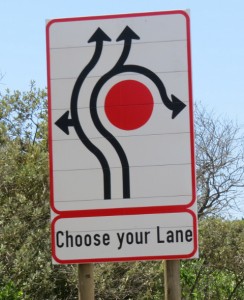In a recently published Special Board decision the Commissioners practice note was challenged. Practice note number 31 reads as follows
To qualify as a deduction in terms of section 11(a) of the Income Tax Act ( the Act ) expenditure must be incurred in the carrying on of any trade as defined in section 1 of the Act. In determining whether a person is carrying on a trade the Commissioner must have regard to inter alia the intention of the person. Should a person therefore borrow money at a certain rate of interest with the specific purpose of making a profit by lending it out at a higher rate of interest it may well be that the person has entered in a venture and is thus carrying on a trade (50 SATC 40). In other words interest paid on funds borrowed for purposes of lending them out at a higher rate of interest will in terms of section 11(a) of the Act constitute an admissible deduction from the interest so received by virtue of the fact that this activity constitutes a profit making venture.
Whilst it is evident that a person (not being a money lender) earning interest on capital or surplus funds invested does not carry on a trade and that any expenditure incurred in the production of such interest cannot be allowed as a deduction it is nevertheless the practice of Inland Revenue to allow expenditure incurred in the production of the interest to the extent that it does not exceed such income. This practice will also be applied in cases where funds are borrowed at a certain rate of interest and invested at a lower rate. Although strictly in terms of the law there is no justification for the deduction this practice has developed over the years and will be followed by Inland Revenue.
The taxpayer was a company that obtained loans from its shareholders and on-loaned amounts to subsidiary companies. The subsidiary companies provided income to the taxpayer in the form of directors fees administration and management fees.
In order to establish the deductibility of an expense or loss one has to apply a positive test and a negative test. The positive test is found in section 11 (a) of the Income Tax Act and provides that for the purpose of determining the taxable income derived by any person from carrying on any trade within the Republic there shall be allowed as a deduction from the income of such person so derived expenditure and losses actually incurred in the Republic in the production of income provided such expenditure and losses are not of a capital nature. The negative test in section 23 (g) of the Act prohibits the deduction of any monies claimed as a deduction from income derived from trade to the extent to which such monies were not laid out or expended for the purpose of trade.
The court considered whether the interest was paid in the production of income and in this regard quoted from the well known case of Port Elizabeth Tramways The act to which the expenditure is attached must be performed in the production of income. The test is subjective an act will be regarded as being performed in the production of income if it is performed bona fide for the purpose of carrying on the trade which earns the income. The expenditure in question must be so closely linked to such act that it can be regarded as part of the cost of performing it. Provided that it is so linked it does not matter whether the expenditure in question is necessary for the performance of the act attached to it by chance or bona fide incurred for the more efficient performance thereof.
The court considered the purpose with which the money was borrowed and held the following – a direct quote from the case In deciding what expenditure is incurred in the production of income one must look at the purpose of the expenditure and what it actually affects. The principle was clearly illustrated in the case of CIR v Drakensberg Garden Hotel (Pty) Ltd 1960 SA 475 (AD) where the taxpayer was able to show a clear connection between the interest paid on a loan to purchase shares and its business profits. Therefore the interest paid was deductible notwithstanding that dividends might in the future be received from the shares and that such dividends would be exempt from tax in the taxpayers hands. Generally in deciding whether monies outlaid by a taxpayer constitute expenditure incurred in the production of income important and sometimes overriding factors are the purpose of the expenditure and what the expenditure actually affects and in this regard the closeness of the connection between the expenditure and income earning operations must be assessed. More specifically in determining whether interest incurred by a taxpayer in respect of monies borrowed for use in his business is deductible a distinction might in certain circumstances have to be drawn between the case where the taxpayer borrows a specific sum of money and applies it to an identifiable purpose and the case where the taxpayer borrows money generally and on a large scale in order to raise floating capital for use in his or its business.
It was held that there was a sufficiently close connection between the interest expenditure and the management fees in that financing of the purchase of all the shares in the subsidiaries was necessary in order to earn the management fees.
The taxpayer won his case.


